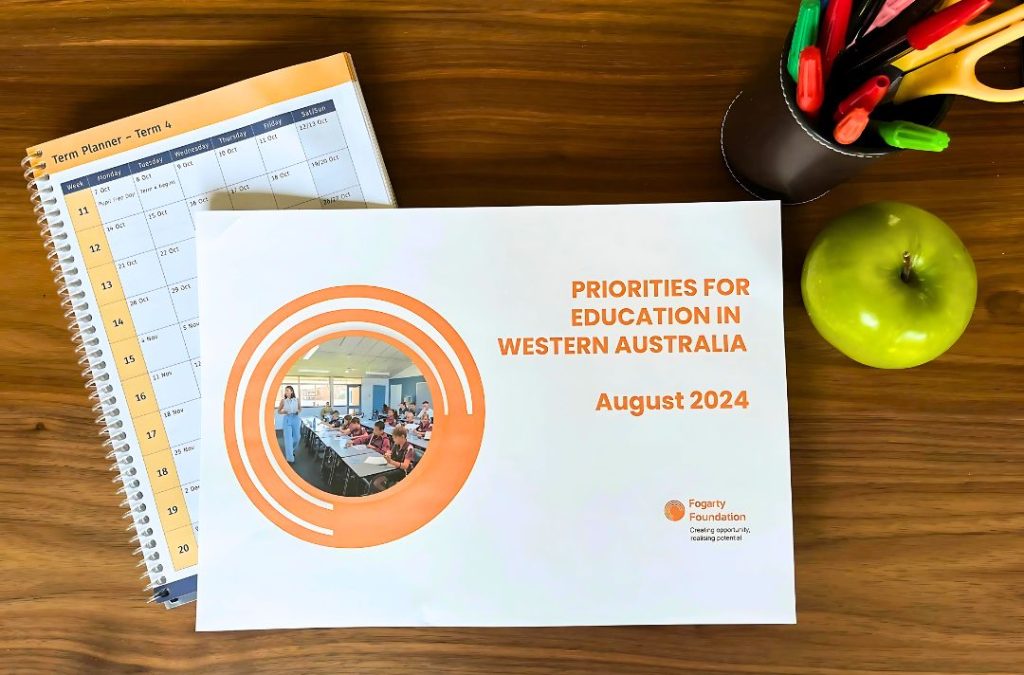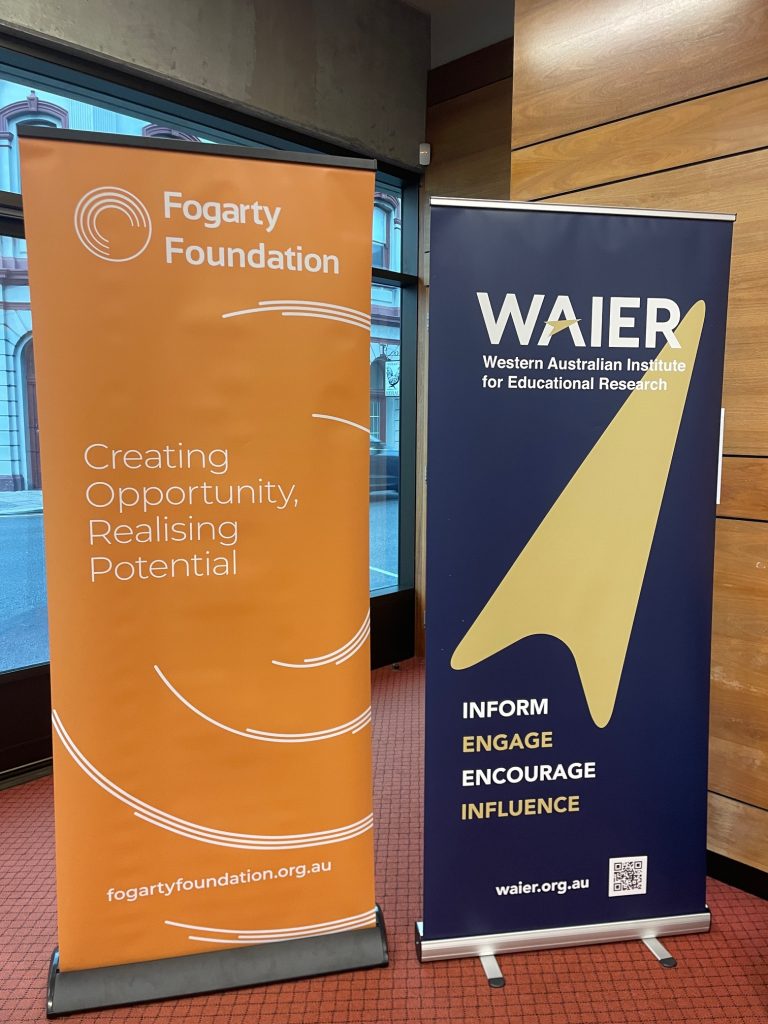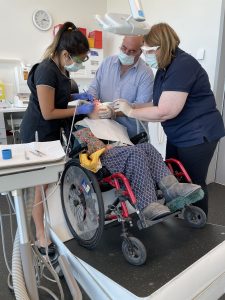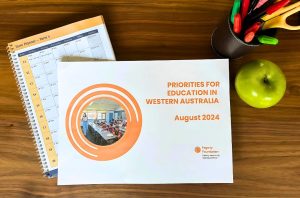The Fogarty Foundation’s response to the proposed new Australian Curriculum
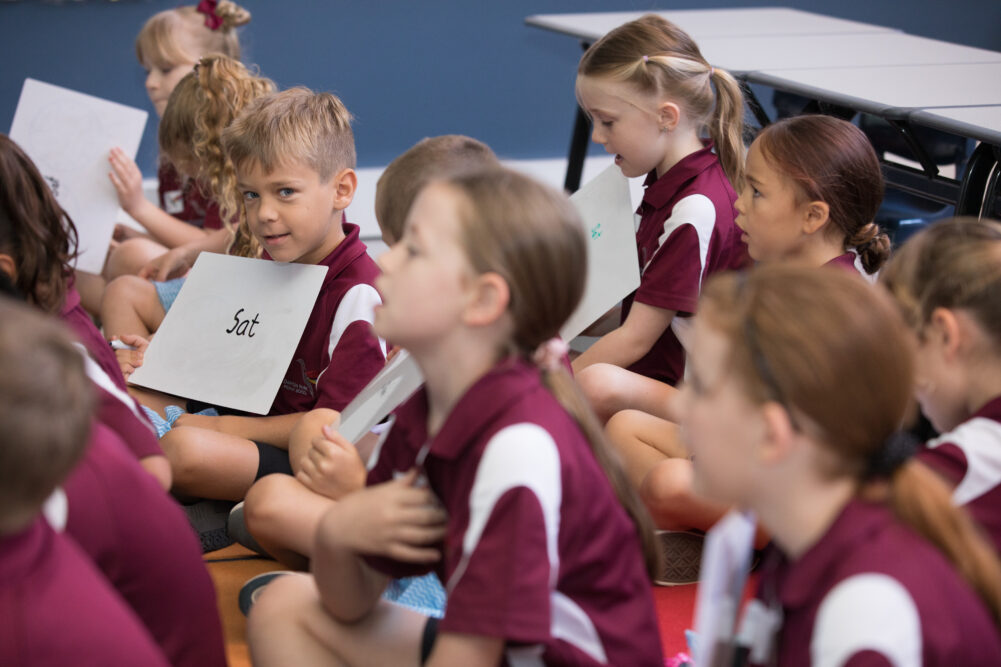
The quality of student learning is inherently dependant on the quality of the school curriculum. The proposed new Australian National School Curriculum has met with a lot of discussion and feedback. In our opinion, the proposed curriculum does not prioritise evidence-based learning, nor does it set aspirational yet achievable standards. The introduction of key concepts, particularly in mathematics, fall far short of many other OECD countries.
We, along with hundreds of others, have submitted feedback to ACARA. You can read our submission below, with links from other regarded educationalists.
The Fogarty Foundation’s submission to ACARA regarding the proposed new Australian Curriculum
The Fogarty Foundation is a social purpose organisation, providing educational opportunities in Western Australia. I write to you with our 21 years of experience in education and particularly, through our 10 years of delivering Fogarty EDvance, a three-year school improvement program for school leaders in challenging communities.
Through Fogarty EDvance, we are working with over 100 low socio-economic schools (both primary and secondary schools) throughout Western Australia. We know that there is a high proportion of students who have difficulties with literacy, predominantly in their ability to read. Thirty-five percent of students in Year 7 in these schools (this equates to approximately 17% of Year 7 students nationally) are reading at a Year 3 level and below, which means they are not independent readers or able to read with fluency. At this level, these students are not able to access information in their books or on their screens in their classes. They lack confidence and no longer identify as a ‘learner’ in their school. As a direct result, many students disengage with education and for some, finish 13 years of school, illiterate and innumerate.
Many of the schools with which we work as part of the Fogarty EDvance School Improvement Program, set out on a journey to make significant improvements in the educational outcomes of their students – starting with reading. These schools set out to use evidence-based teaching and learning approaches to the teaching of reading. This typically involves using high-impact instructional strategies (such as explicit instruction) across the school with a strong focus on effective reading instruction in the early years. Effective reading instruction requires students during the early years of school to master the alphabetic code via systematic, explicit, and intensive instruction in phonemic awareness, phonics, reading fluency, vocabulary, and reading comprehension strategies (Department of Education, Science and Training 2005, p.25).
The schools strategically plan to implement effective reading instruction as part of their school improvement work and in doing so, know that the evidence that supports this type of instruction is solid. However, many of their teachers do not have the necessary skillsets to be able to teach reading in this way. As a response to this, the Fogarty Foundation established a teaching intensive in 2019, for schools to send teachers (both new graduates and experienced teachers) to receive a week of intensive coaching and demonstrations in explicit instruction. This included a focus on effective reading instruction in the early years. The teaching intensive was carried out during school holidays, with students at the low socio economic primary school giving up a week of their holidays to take part in the intensive. Demand was so great that we ran two intensives the following year, three in 2021 and are planning four for 2022. Again, there is no shortage of school students and teachers who want to be part of this program. In total, 250 teachers have been trained through our EDvance Teaching Intensives (using 200 students, 15 expert teachers/coaches and 2 program leads, Dr Lorraine Hammond and Brooke Wardana).
The demand for these skills is great, but the supply is low: skills which are not being taught in most Initial Teaching Education university courses. A previous EDvance staff member has now established a business to help address this need.
Given our work with school leaders over the past ten years and more recently, our work with teachers, our strong submission is that only evidence-based teaching approaches should be included in the proposed curriculum. The inclusion of whole language in the revised Australian
Curriculum is out of step with research and is failing our children. We concur with the submission made to ACARA by Emeritus Professor Max Coltheart on behalf of the members of the Developmental Disorders of Language and Literacy (DDoLL) network dated 7 May 2021, including the attachment of the article written by Dr Jennifer Buckingham that was published in The Australian on April 30, 2021.
We draw your attention to our website and in particular, the Report Card for Cohort 4 which can be located here. What school leaders and teachers need to improve reading for their students is clear guidance from the Australian Curriculum on effective reading instruction. It is our strong belief that with evidence-based approaches to teaching and learning, all schools can improve academic (and ultimately, life) outcomes for their students.
You can read additional feedback at the following links:
Curriculum takes backward step on the path to literacy – Five From Five
Open letter to Mr. David de Carvalho, CEO of ACARA, and the ACARA Board
